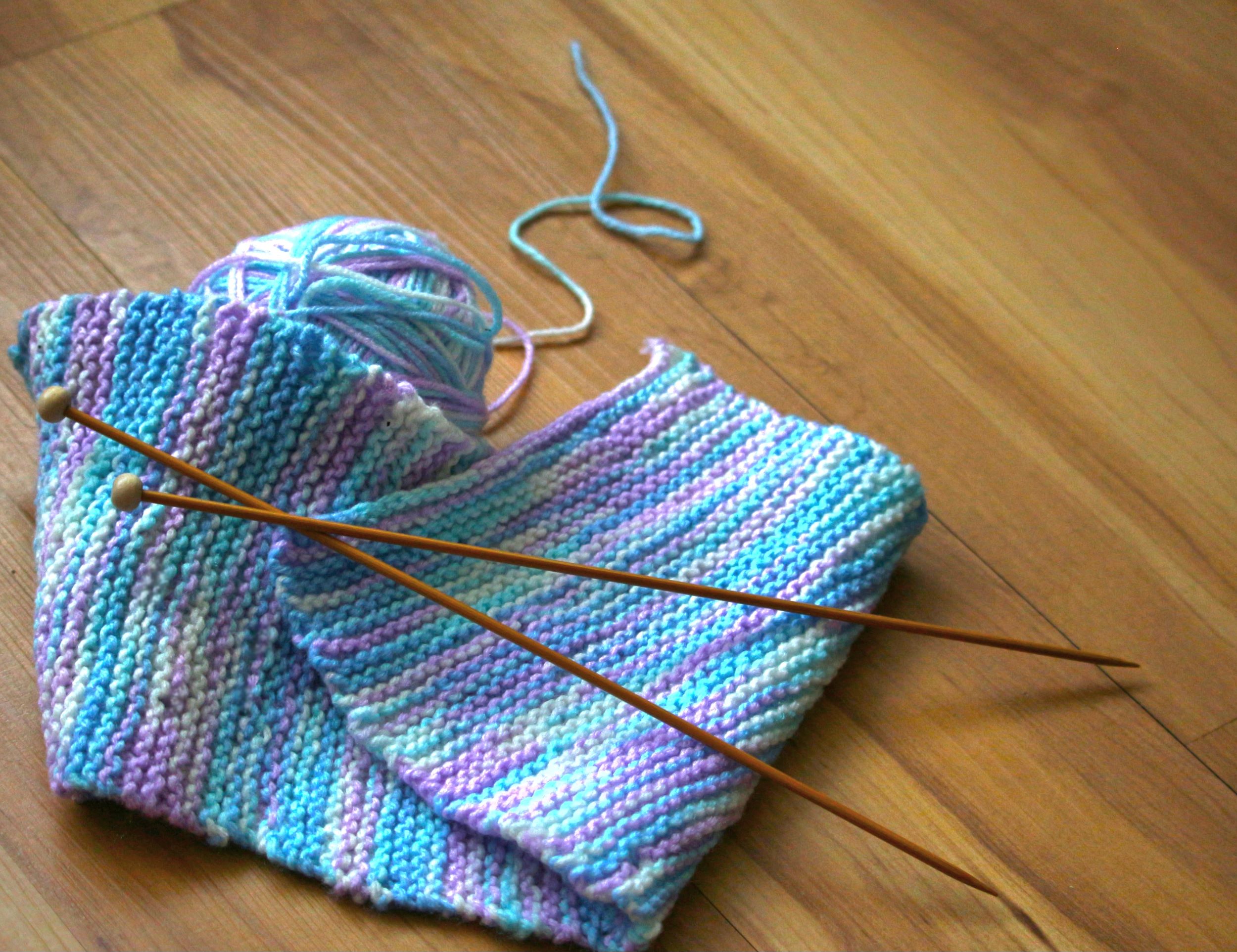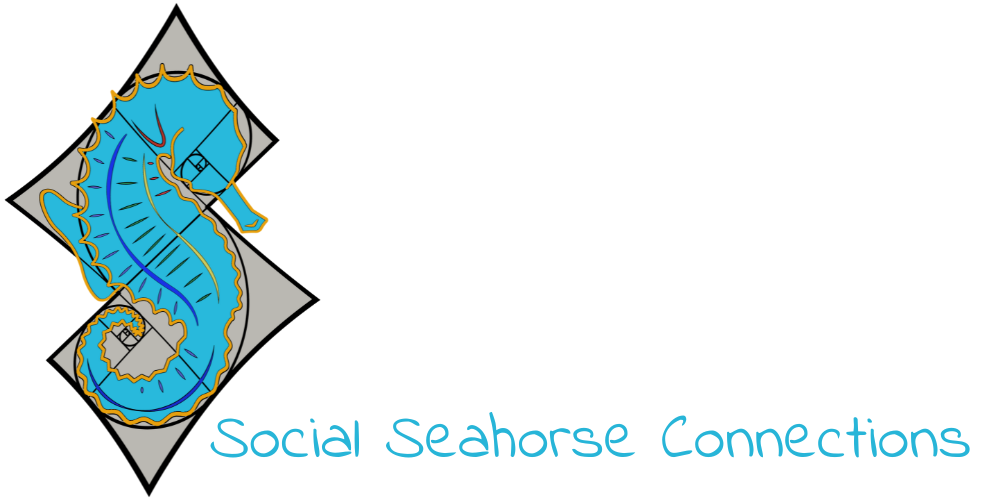
Drama comes to the world of knitting.
Today, I was introduced to the world of craft-related drama in the fiber arts space, and I’m hooked!
It turns out that when two, egotistical white guys insult the online knitting community in various ways, including inferring that many veteran content creators are technophobic luddite geriatrics, that community doesn’t just notice, they respond – in force. The knitters responded as a community, even out-entrepreneuring the podcasters who had intended to use their endeavor to teach online business creation.
Three particular social components of the knitting community stand out to me in this situation: the open sharing of knowledge, the diverse make-up of the community, and connectivity.
Before we talk about the community, let’s look at what happened here.
It all started when the podcasters announced they planned to launch a content website for beginning knitters. Explaining that they were going to let listeners follow along as they quickly and easily turn a purchased domain name into a 10-million-dollar revenue business, they openly admitted they had no expertise in this space.
Their purpose was both to make money and use that example to teach online entrepreneurs how to launch a successful online business in a niche in which one has no expertise.
As a side note, this isn’t unusual; many businesses hire experts to create the content itself, using their entrepreneurial skills to manage the business. What quickly did become problematic for the podcasters was their lack of understanding about the crafting market, its community, its strength, and its connectivity.
The podcasters ended up learning lessons about community as well as being schooled in some principles of business markets.
I discovered this fascinating world of craft intrigue when my son sent me a link to a video on the channel named emma in the moment. The channel is run by crochet and knit pattern designer Emma and features “craft related drama videos.” Her main channel, made in the moment, focuses on crocheting and knitting itself. Her vlog reporting is absolutely excellent, and I encourage you to check her out.
Open sharing of knowledge
As someone whose first job was in a fabric store, I know the power of crafters! From my work colleagues and customers – most far older, I was introduced to every manner of crafting from counted cross-stitch, quilting, doll-making, upholstery, weaving, scrapbooking, and yes, knitting – all with a great deal of open sharing of knowledge and skills.
Crafters have great respect for intergenerational sharing of knowledge.
Thus, it came as no surprise to me that when two relatively young males thought new knitters needed their brand of content because they could put out content that’s more “nimble” and “approachable” than any “Grandma who has a little blog she’s run for the last 20 years,” they were going to face a formidable response.
Learning communities create social bonds of support
Knitting, of all the crafts perhaps, is one of the easiest to pass down through generous sharing of knowledge and skills because the basic foundation is two simple, pointed sticks and some yarn. Within minutes, one can be taught to make an actual item with just those materials and a little guidance. Yet the complexity one can reach with the most basic foundational tools of needles and yarn is infinite, taking a great deal of skill and a lifetime to try all manner of possibilities.
One knitting community member, @sammiemammel1753, makes this observation in the comment area of emma in the moment's YouTube post on the knitting purchase drama titled “Knitters Hate These Guys: What Went Wrong with Knitting.com."
“Wild that they didn't go with fishing because the tools are ‘too basic’ to iterate on, and chose knitting instead, the craft that uses crazy complex tools and definitely not just two pointy sticks.”
This community experience of sharing knowledge and skills creates mentorship and peer relationships, so when insults start flying, knitters support one another vocally.
You can feel the love and support in this comment:
“Technophobic Luddite Grandma here. I am standing on the shoulders of generations of grandmas who were all instrumental in passing on their skills to me. I wanted to come in and say thank you to all the younger generation who are supporting us and keeping the skills alive. It is an absolute pleasure passing my skills on to all who are keen and eager to learn. Thank you for this episode.”
From @judithmitchellthedevotedlu3087 on the coverage by Emma.
Diverse communities create social bonds of protection
Perhaps the announcement that the podcasters had laid out $80,000 to buy the domain name Knitting.com was the first thing to attract the attention of knitters and crafters alike. Most people already in the online knitting space (remember those “grandmas” who have been blogging for 20 years), don’t throw that kind of money into their business solely for a domain name. But, it wasn’t the outlay of money that brought viral backlash; it was the often tone-deaf lack of knowledge about the world of knitting and its diverse community.
Crafting is one of the spaces in which we enjoy more inter-generational contact than most of our other social communities. Sports are generally organized around people of the same age and often gender. Game groups are generally formed around a certain generation who came of age during a certain time period – think of Bridge, Dungeons & Dragons, or The Settlers of Catan. Other hobbies and activities not only tend to have communities of similar age but socio-economic status as well – DIY, Pickleball, garage sale-ing, or traveling.
But knitting? It can be done by the youngest of children to the oldest of humans and everyone in between – and is. It’s as popular in the LGBTQ+ community as it is in the basement of a conservative protestant church.
As a community with a sizable contingent of disabled, queer, and neurodivergent people, awareness of ethics and inclusivity is high.
Thus, comments by the domain purchasers which are interpreted as racist, misogynistic, and simply belittling brought a viral response from the knitting world speaking in support of those who had been teaching the craft since before the podcasters were born. The podcasters’ (multiple) attempts to apologize only fueled the flames, further revealing how little market research they had conducted.
One of Emma’s commenters points out just how little the podcasters understood the market:
"‘We didn’t think knitters would find our podcast’ says everything about how much these guys actually care about the community they are trying to ‘revolutionize.’ They really did zero research into their market audience and then blamed it on the audience.”
Posted by @wrenmassey6876 on Emma’s coverage of the situation. Minor typos edited.
I won’t go into the detail of all the podcasters problematic statements because what's important to Social Seahorse Connections is how communities create positive connections and impacts, not highlighting those who behave poorly; however, if you are interested in knowing more, I encourage you to watch the full episode by Emma: Knitters Hate These Guys: What Went Wrong with Knitting.com. She provides all the context as well as clips and screenshots of the original post that started the hullabaloo.
The original vlog post itself has been taken down by the podcasters, but you can still listen to the audio. The Quartz article mentioned below provides the link if you want to hear the words straight from the podcasters’ mouths.
Find a full report on Quartz: “The all-out revolt against Knitting.com helps explain boycotts at Reddit and Etsy.”
They summarize their coverage with this gem:
"It’s no coincidence that members of the fiber arts community, which has an extensive offline history as a medium for activism, subversion, and political dissent, have been active members in the recent demonstrations on both platforms [referring to Reddit and Etsy]. In CraftGeek’s words: 'If you come for the knitters, you’re going to get the needles.'”
Connected communities create bonds of influence.
A world with as much interaction online as in person is one with significant cross-connectivity and influence.
The close-knit community let the podcasters know their thoughts, rallying to stand up for themselves and those who were affected by the comments made, causing the entire story to go viral.
According to Emma’s research, the podcasters never did offer the entrepreneurial training courses planned around using the Knitting.com domain project as a training in how to create a 7-figure business. Nor did they ever develop and offer a surplus of products to improve the craft.
The knitters did more than make noise; they also took action.
One of Emma’s commenters shares in the comment section of her coverage:
“You forgot to mention that they spent $80,000 on the domain and didn’t lock down ANY of the social media handles. IIRC, the Twitter and Instagram handles were QUICKLY picked up by actual knitters and it was BRILLIANT."
Posted by @justinaclayburn2248.
Well done knitters!
My grandmother introduced me to knitting, and I still have the gorgeous chevron afghan she made me for college. As an adult, I participated in a religious knitting group where I picked up a few more skills, and later I knitted with a diverse group of women from the Heartland. One of my sons knits as well. I’m proud to have connections to this community.
Being a part of a community in which you learn a skill or new knowledge has the benefits of learning as well as connection.
If you aren’t already in a learning community, what might you like to learn? Or, perhaps you have some knowledge or skill to share. What opportunities exist in your community for participation? You’ll find learning communities are excellent ways of creating social value in your life and the life of your community.
And, if drama comes your way in your chosen activity, you’ll have the support of a community to respond alongside of you.
Golden Connection Challenge:
First, if you know a knitter personally, give them a shoutout for being part of a wonderful community and maybe share Emma’s vlog post with them.
Second, consider: what learning communities do you belong to? How you are engaging, supporting, and lifting up others in the community? Give one of your communities - in-person or online - some love today by telling them how much they mean to you and/or by introducing a new person into the community.
